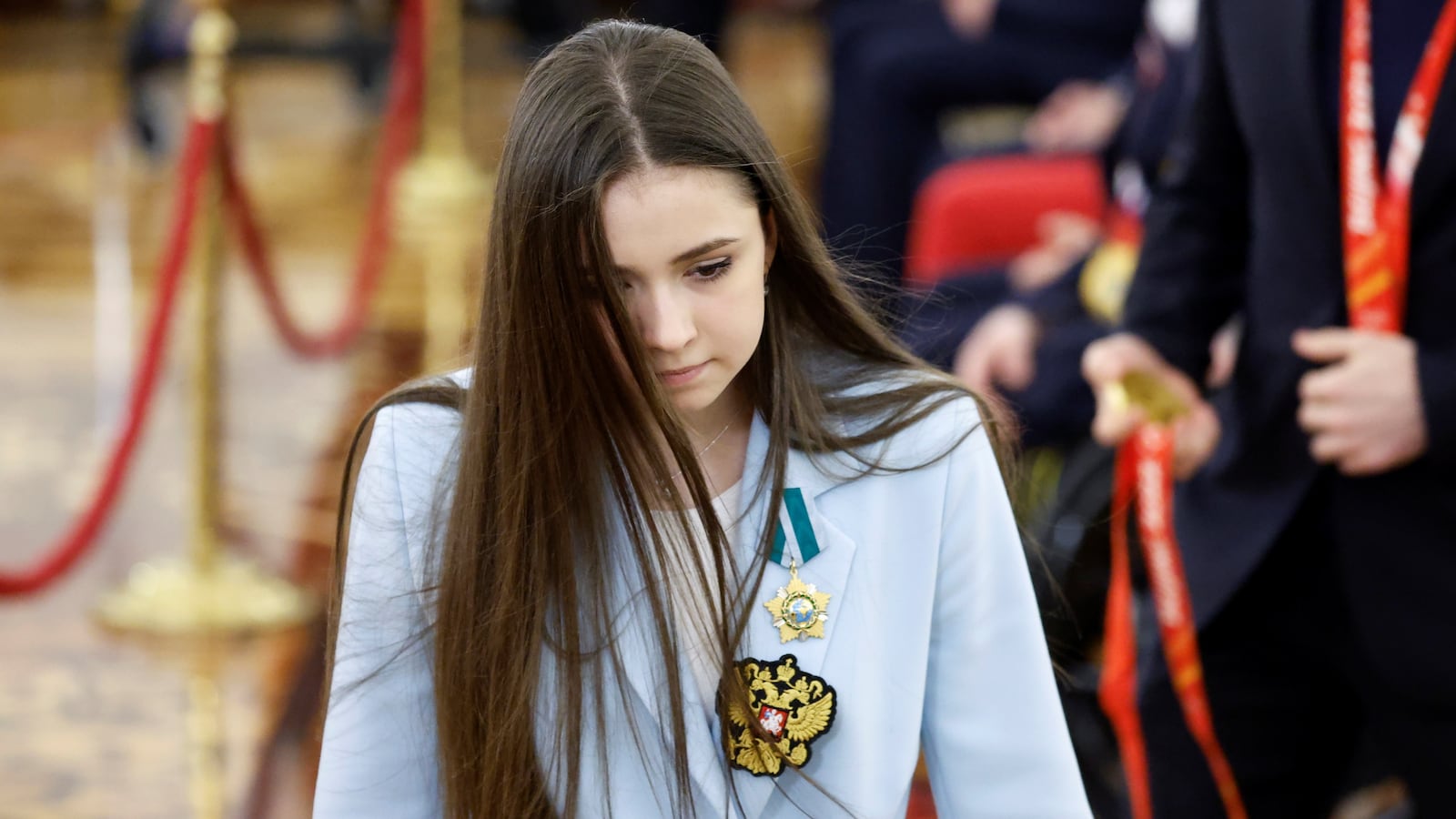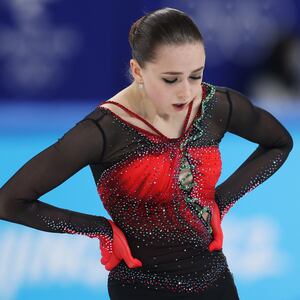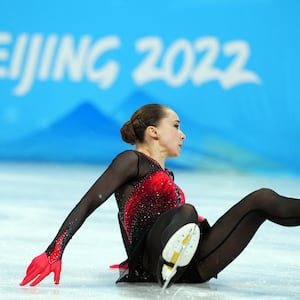Russian figure skater Kamila Valieva, who was controversially permitted to continue skating at the 2022 Beijing Olympics despite failing a drug test, was issued a four-year retroactive ban from the sport on Monday—a decision that’s expected to strip Russia of a gold medal in team figure skating.
With Russia stripped of its medal, the United States, who finished in second, appear poised to be named Olympic champions, but the International Olympic Committee is yet to officially rule on the matter.
The decision to ban Valieva, 17, was made by a three-member panel at the Court of Arbitration for Sport in Geneva, Switzerland. The sporting body had previously cited “exceptional circumstances” in allowing Valieva to compete—but not be awarded medals—in Beijing.
The scandal rocked the Beijing Games, with officials not learning of Valieva’s positive drug test until she’d already led Russia to a team victory. The delay was caused by staffing issues at a laboratory in Sweden, which was late to process Valieva’s sample, which was taken six weeks earlier at the Russian national championships.
The ban will be retroactive to the date she gave the sample, Dec. 25, 2021, meaning Valieva can return to competition approximately a month-and-a-half before the 2026 Winter Olympics begin in Italy.
As part of the retroactive ban, Valieva must forfeit “any titles, awards, medals, profits, prizes and appearance money” that she earned after her positive doping sample was collected.
The decision comes after years of outcry about the delay in determining a punishment for Valieva. Authorities said previously that the probe was complicated because of Valieva’s claims that her failed drug test was due in part to her mistakenly taking a heart medication, Trimetazidine, prescribed to her grandfather.
Russia’s anti-doping body cleared Valieva of wrongdoing, citing her age—15 at the time—as reason she couldn’t be held responsible.
That didn’t stop rival federations from calling for Valieva’s ejection from the Beijing Games, however. Placed under pressure, the Court of Arbitration for Sport determined Valieva could continue to compete but couldn’t be awarded any medals.
That decision kept dozens of other athletes off the podium, however, and it’s now the IOC’s responsibility to reallocate medals to their rightful winners. NPR reported that some should-be medalists may be honored at a ceremony during the 2024 Summer Games in Paris.
In a statement, the U.S. Olympic body’s CEO, Sarah Hirshland praised the decision to retroactively ban Valieva.
“We now anticipate the day when we can wholeheartedly celebrate these athletes, along with their peers from around the world,” she said. “Their outstanding performances in Beijing will forever symbolize their commitment to clean competition.”
The World Anti-Doping Agency praised the decision to ban Valieva, but urged in a statement that there needs to be punishment for adults who push performance-enhancing drugs on minors.
“The doping of children is unforgivable,” it said.







